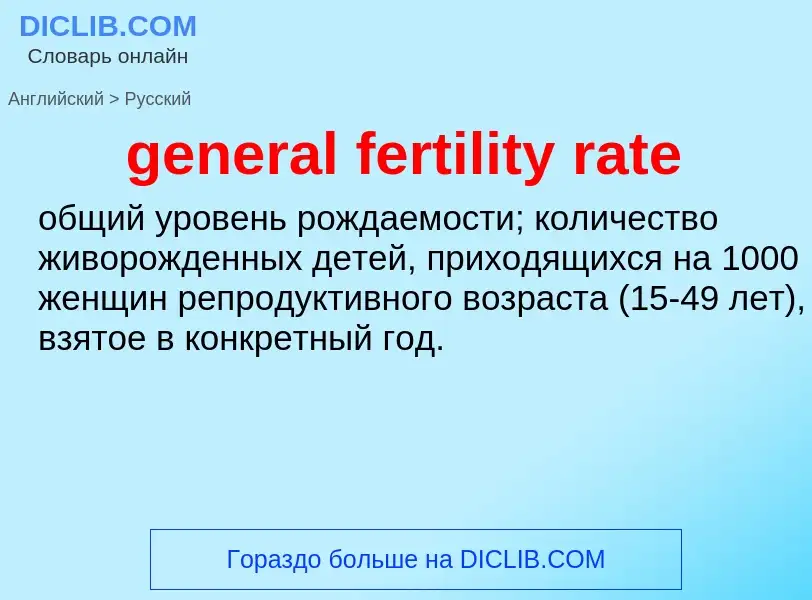Traducción y análisis de palabras por inteligencia artificial
En esta página puede obtener un análisis detallado de una palabra o frase, producido utilizando la mejor tecnología de inteligencia artificial hasta la fecha:
- cómo se usa la palabra
- frecuencia de uso
- se utiliza con más frecuencia en el habla oral o escrita
- opciones de traducción
- ejemplos de uso (varias frases con traducción)
- etimología
general fertility rate - traducción al ruso
[in'fe|kəndin'fi:{kənd}-]
общая лексика
бесплодный
неплодородный
прилагательное
книжное выражение
бесплодный
Definición
Wikipedia
Fertility is the ability to conceive a child. The fertility rate is the average number of children born during an individuals lifetime and is quantified demographically. Conversely, infertility is the difficulty or inability to reproduce naturally. In general, infertility is defined as not being able to conceive a child after one year (or longer) of unprotected sex. Infertility is widespread, with fertility specialists available all over the world to assist parents and couples who experience difficulties conceiving a baby.
Fertility is an issue for people of both sexes. According to the Centers for Disease Control and Prevention, in 35% of couples who cannot conceive, the cause can be attributed to factors on both the female and male side. Human fertility depends on various factors including nutrition, sexual behaviour, consanguinity, culture, instinct, endocrinology, timing of conception, economics, personality, lifestyle, and emotions.
Fertility differs from fecundity, which is defined as the biological capacity to reproduce irrespective of intention for conception. Fecundity can be explained by gamete production, fertilization, and carrying a pregnancy to term. The antithesis of fertility is infertility while the antithesis of fecundity is sterility.


